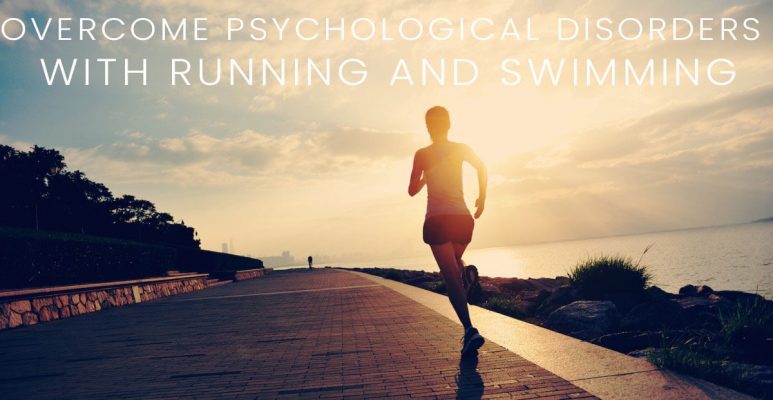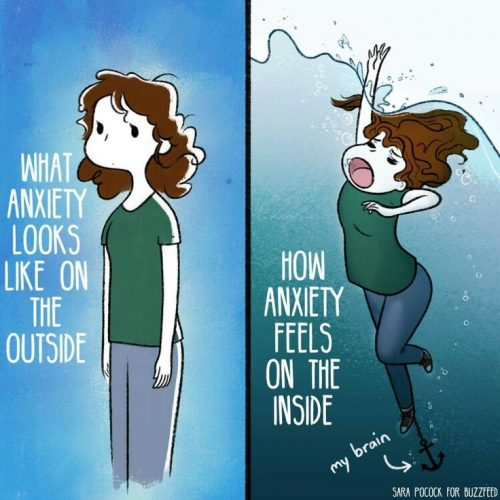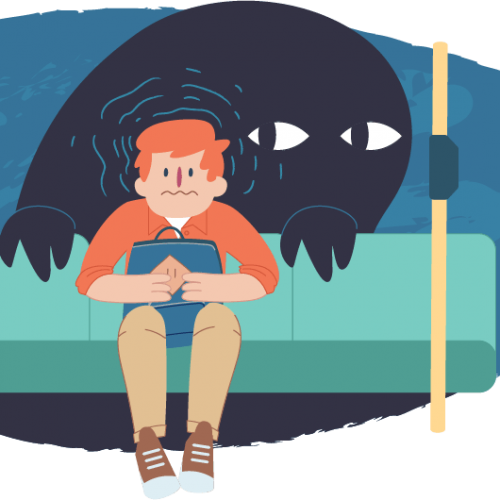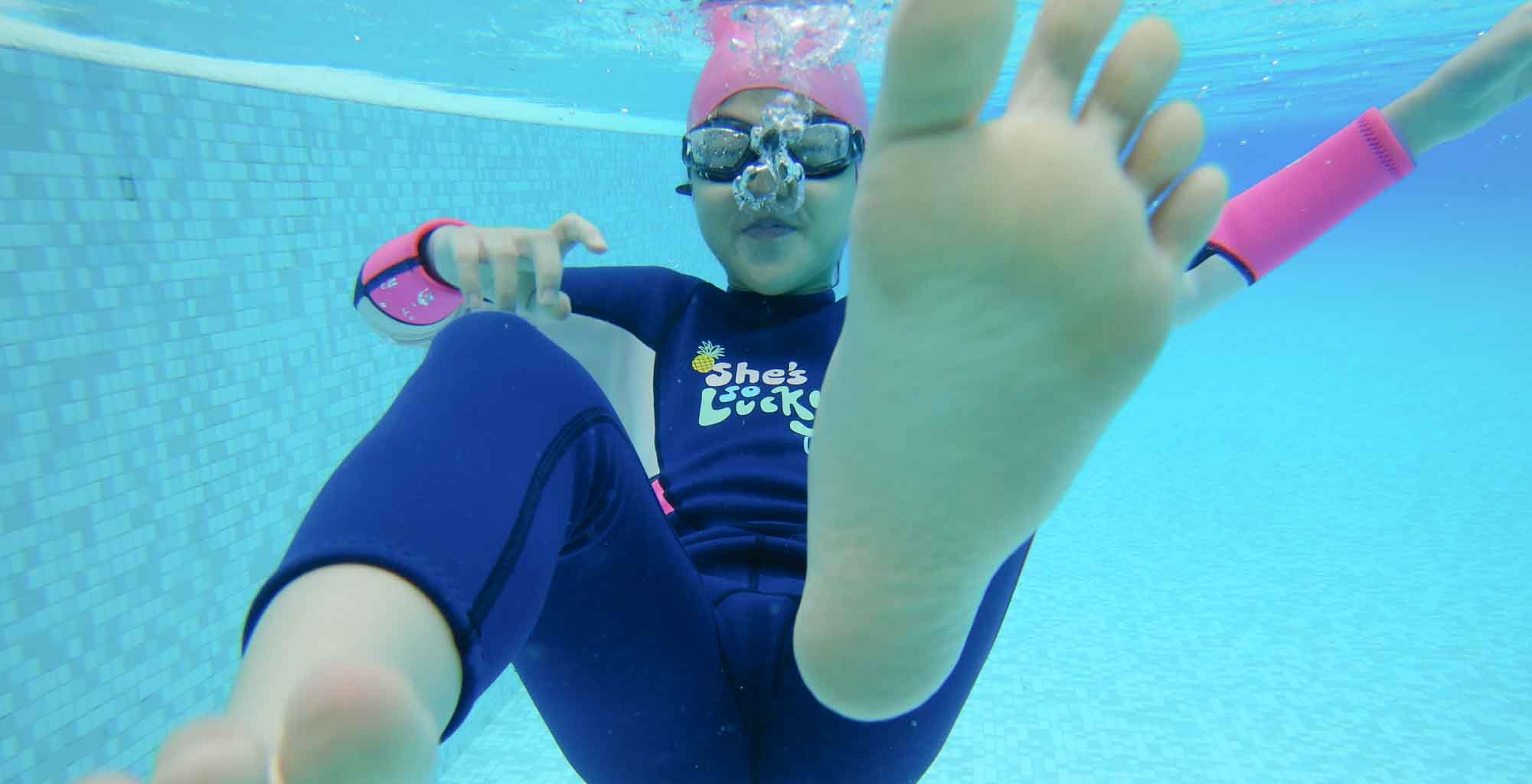Beat 6 psychological disorders with exercises like swimming and running

Benefits Of Swimming and Running
This list covers 6 psychological disorders such as depression, Anxiety, and Obsessive-Compulsive Disorder, Attention Deficit Hyperactivity Disorder, Eating Disorder and Post Traumatic Stress – running and adults performing swimming help us beat these disorders!
Both running and swimming can bring benefits to your physical and mental well being. Running works on your cardio while swimming gives you the workout that is non-weight bearing, easy on the joints.
Swimming and running can both be done alone with an earpiece stuck to your ear nowadays. Unlike other team sports which you need to at least have two-person to get the ball rolling.
When a documentary photographer Martin Eberlan was diagnosed with ADHD also known as the attention deficit hyperactivity disorder. He turned to run and swimming to control the impulses and excessive thoughts.
Martin as pictured below also described “having a long term relationship with running”. The running brought him effects like slowing him down and managing his life with more focus on the things of higher priorities in his life.
Swimming, however, keeps his focus and relaxes him with aid of the superpower water.
Psychological Disorders And Consistent Exercise?
ADHD is one of the 6 kinds of psychological disorders, a common kind of disorder usually found in children and will continue on to adulthood.
People diagnosed with ADHD usually find it difficult to control their anger and impulses. They may have a lot of difficulties trying to focus, pay attention and concentrate. This will, in turn, jeopardize his or her school and personal day to day living.
Hard work pays off, disciplining oneself to do what is hard and difficult such as maintaining consistency in swimming and running. It keeps you healthy and gain you positive results denied everyone else.

One photographer made a special compilation of all the runners and those who enjoy running, to find out how they had discovered their passion for running, doing regular exercise and swimming relates to previous experiences and their mental health.
After having met many fellow runners during his trips, he made up a photo series “Those Who Run”. Here is just a compilation of all the words and interviews to summarize everything and let us have a better understanding of how regular exercise helps us in boosting both our mental and physical health.
Exercise helps people of all ages, it is a primitive and inexpensive method used from people since the ancient times for entertainment. It helps people to get in or stay in shape, this benefits now extend itself out to mental health as well.

Beth Lackenby regularly jogs around her local parks in south London, using the activity to manage her anxiety and obsessive-compulsive disorder.
Her OCD manifests itself in the form of intrusive thoughts, leading to guilt and anxiety. Running and swimming regularly helps her clear her mind and keep her OCD in control, and prevent anxiety from disrupting her life.
Obsessions are part of OCD which often exists only in the mind without much action. They are intrusive and unwanted thoughts, images, or urges that cause distress or anxiety. Compulsions are behaviors that the person feels compelled to perform in order to ease their distress or anxiety or suppress the thoughts.
1. Eating Disorders
Coralie Frost says she faced a choice between running or being controlled by an eating disorder, for the rest of her life. She had been suffering from anorexia for 10 years.
Anorexia Nervosa is a kind of mental illness that involves the partial or total restraining of oneself from food (solids or liquids) because he or she will often make-believe that any amount of food will cause weight gain.
An anorexic often perceives herself or himself as ‘fat’ and has a severe fear of gaining weight. This is reflected in an unhealthy preoccupation with food and exercise, and sometimes purging through self-induced vomiting and laxative abuse.
Psychological disorders causes eating disorders
One very dangerous condition associated with an eating disorder will be the “diabulimia”. This condition only occurs to a small structure of populations and always forgotten by most people. These are the people contracted with diabetes and try to cut down and put off the insulin intakes to their body so as to better control their weight.
Diabetes is a condition when insulin injection is critical and important to help people with diabetes maintain their survival, without it will lead to serious disastrous consequences.
Fortunately, in Coralie Frost’s case, she chose to run. In 2016, she writes quite frequently on her blog about how running, swimming and regular exercising had helped her mental health. Through all the active lifestyle and quitting the sedentary one she used to have, she developed a new-found respect for her body.

Sports therapy curb psychological disorders
She believes that sport – combined with therapy – can play a key role in alleviating mental health problems. Coralie is now a member of the Serpentine running club, where she is one of the mental health ambassadors.
She often hosts a Run Chat, where club members can run with her while chatting through any worries they might have. In confidence, She met her boyfriend while training for her first marathon, and hangs her race number in her living room to remember. The time that her life was transformed through running and regular exercise.
2. Obsessive-compulsive disorders

Michelle Bavin started running, doing her swim work out in November 2016, starting slowly with a 5km run. Initially, she started running without being able to break a minute, but that doesn’t stop her from trying and now she is enjoying the freedom from all her negative thought patterns.
Michelle had struggled with a “very bad relationship with food” before she started running and mental health problems. She weighed just over 20 stone in January 2016. With the help of a local support group and persistence, she got rid of almost near to 9 stones. Michelle can now comfortably complete 10km and run twice a week.
Running always gives her a sense of achievement, while concentrating on breathing and music helps her forget all her worries and troubles. She says afterward, she feels “ready to take on the world”. Exercise done regularly does give you an effect like this sometimes, so let’s go do it. Sweating out and start feeling all great to take on the world
Note: Each stone now equates to an amount of 14 pounds or 6.35kg
3. Depression

Paul Shepherd runs along the beachfront and promenades near his home on the south coast of England listening to the sound of the water waves. Running around the water also gives him structure, frees his mind and gives him valuable time to himself, helping him to manage the depression he previously experienced.
In 2016, after a long stretch of night shifts and working long hours, Paul found himself sleep-deprived. This lasted for almost a year, leading to alcohol-filled weekends. He says this left him feeling depressed and suicidal.
Paul is thankful that the running then allows him to enjoy his time with his son. He says that life is all about putting one foot in front of the other – and that’s what he’s going to continue to do.
4. Anxiety and Obsessive-Compulsive Disorder

Beth Lackenby regularly jogs around her local parks in south London, using the activity to manage her anxiety and obsessive-compulsive disorder.
Her OCD manifests itself in the form of intrusive thoughts, leading to guilt and anxiety. Running and swimming regularly helps her clear her mind and keep her OCD in control, and prevent anxiety from disrupting her life.
Obsessions are part of OCD that often exist only in the mind without any actions. They are intrusive and unwanted thoughts, images, or urges that cause distress or anxiety. Compulsions are behaviors that the person feels compelled to perform in order to ease their distress or anxiety or suppress the thoughts.
5. Post-natal depression and anxiety
Karen Jones says ever since she took up running in 2005, she have never looked back. During that time when she was 16, Karen suffered from postnatal depression. Her health visitor suggested an exercise program might help her. Karen chose to run, as she lived in the countryside.
In 2006, she ran the London Marathon, raising money for a cancer charity. Done in memory of her grandparents, who both died of the disease. Not only did running help her overcome her depression.
She found that the combination of healthy eating and exercise vastly improved her overall mental disorder. It boosted her mental health and happiness. She kept up the running for five years until her marriage broke down. And she found herself going back to work after being a stay-at-home mum for many years.
Faced with starting a new career at 44, Karen decided to embrace her love of exercise and trained to become a personal trainer. She now teaches people how to get fit and help them overcome depression and anxiety gradually.
6. Post-traumatic stress and anxiety
Lucy Thraves says she couldn’t imagine her life without running and recently ran the London Marathon. But her first foray into running wasn’t a positive experience. While at university one morning, she headed out for a run and was hit by a car. She broke both her arms.
For weeks after the accident, she found it increasingly difficult to leave the house. And began to experience symptoms of post-traumatic stress and raised levels of anxiety. This gradually spiraled out of control, leading to insomnia, paranoia and a challenging relationship with food. It was then that she checked herself into a mental health clinic.
With the correct guidance and a combination of therapy, healthy eating, anti-depressants. Her condition improved with a gradual growth in self-confidence.
Lucy was able to build up the strength to start running again. Lucy says that running was never initially about getting “personal bests.” Instead, it was an activity that she took on to help her recovery.
Not only curb psychological disorders.
Swimming and running not only helps to improve psychological conditions. There are myriads of benefits linked to swimming and running such as endurance boosts, increase muscle mass, improvement to body composition, pump your heart, improve cardiovascular muscle.
Swimming however top it up as being the sole exercise safe to perform for all age groups. It can be done indoor or outdoor. With swimming, you get none of the other joint pains running or hitting the gym can cause.
I have incorporated exercise in my life, have you? Which are the exercise that helps you most in relieving the stress in your life?


